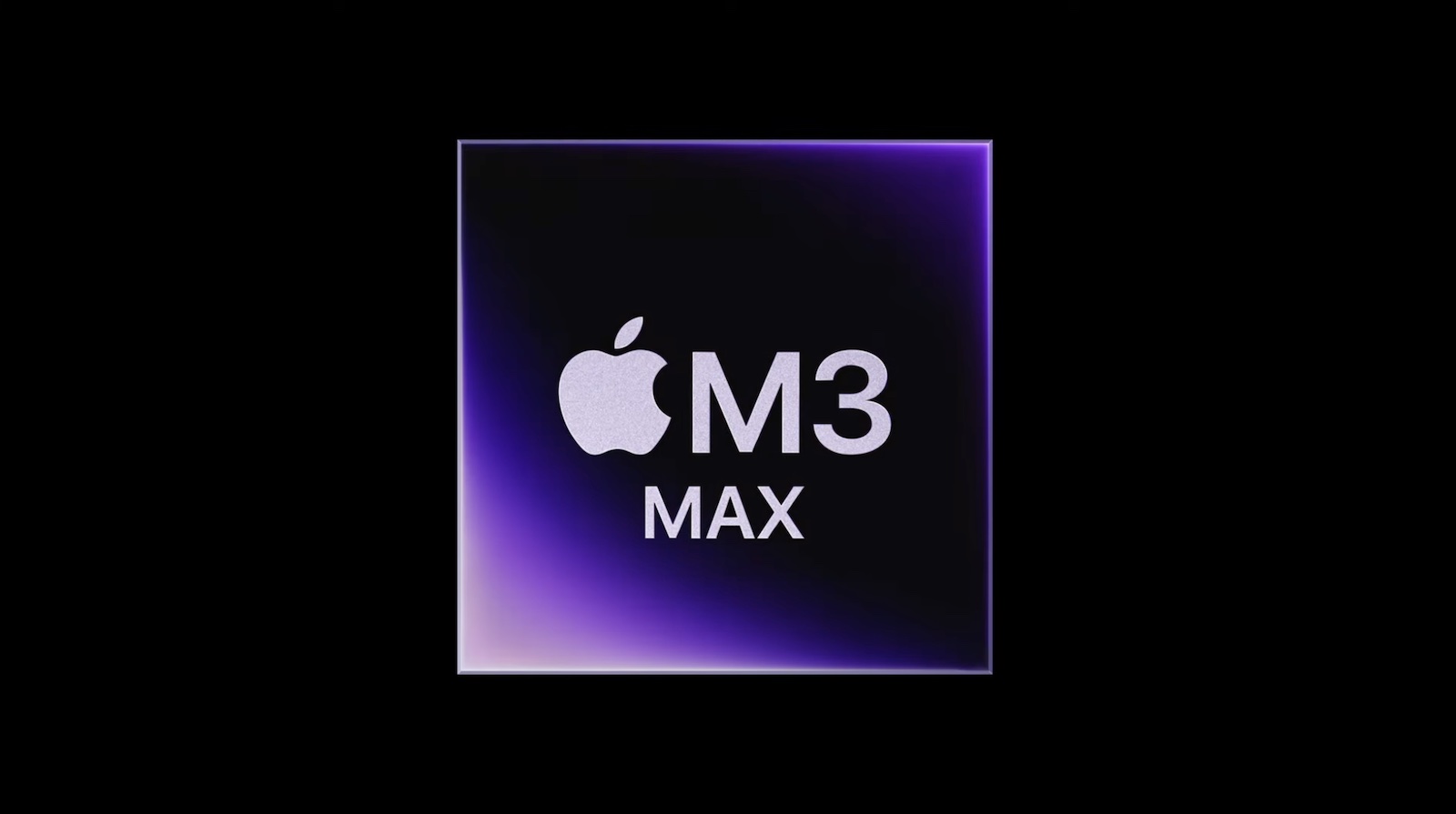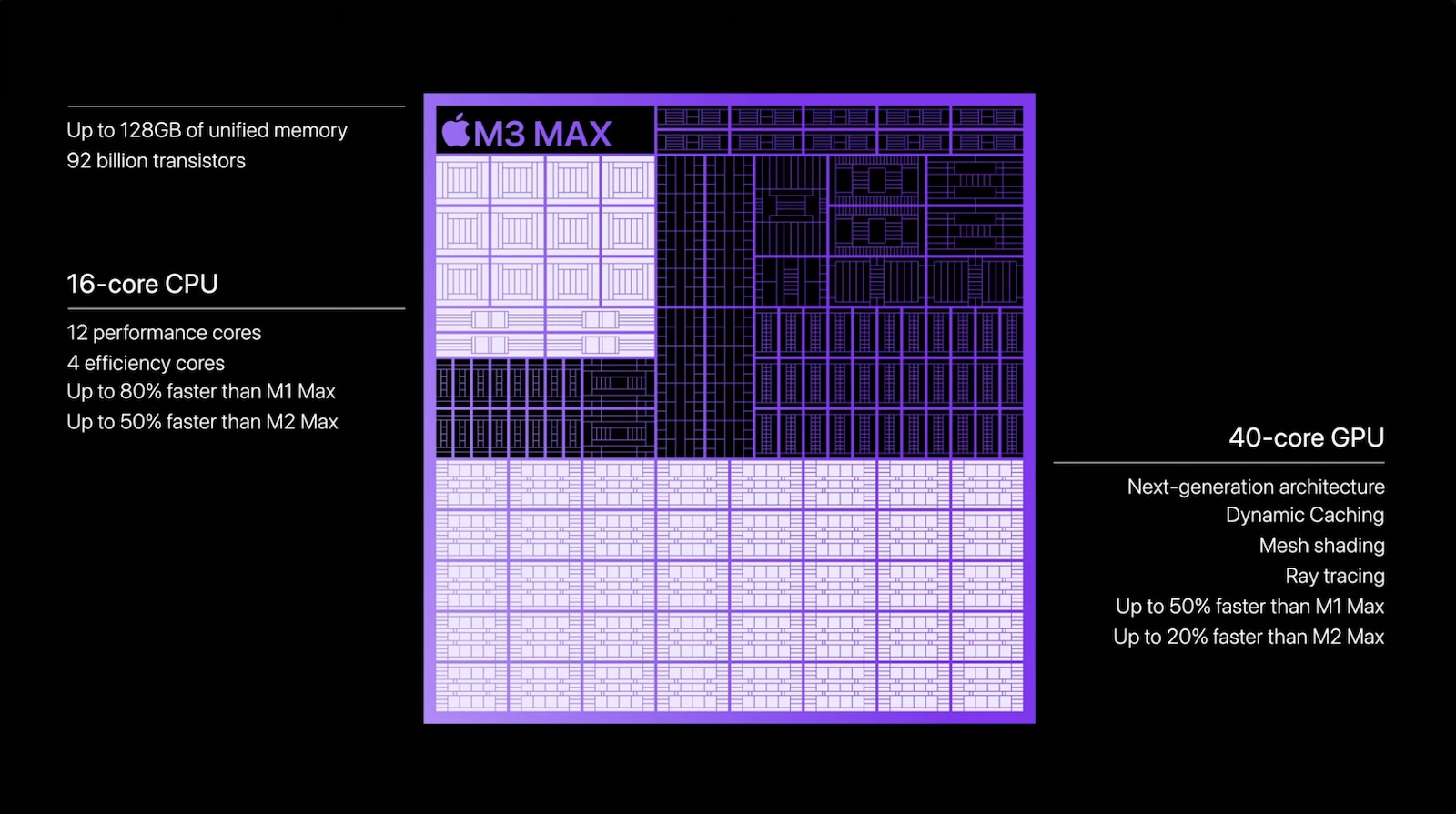The first benchmark results for Apple's M3 Max chip surfaced in the Geekbench 6 database today, providing a look at CPU performance. Based on the "Mac15,9" model identifier shown, the results appear to be for the new 16-inch MacBook Pro.

The highest multi-core score for the M3 Max with a 16-core CPU is currently 21,084 as of writing. If this early result is accurate, this means the M3 Max is around as fast as the M2 Ultra chip, which has an average multi-core score of 21,182 in the Mac Pro tower and 21,316 in the Mac Studio, according to a chart on the Geekbench website.
The M3 Max in the new 16-inch MacBook Pro is around 45% faster than the M2 Max chip in the previous-generation 16-inch MacBook Pro, according to the Geekbench website. This is within the ballpark of Apple's claim that the M3 Max is up to 50% faster than the M2 Max, especially given variance in early Geekbench results.
Geekbench 6 multi-core scores for CPU performance:

The new 16-inch MacBook Pro starts at $3,499 in the U.S. when configured with the M3 Max chip, while the Mac Studio with the M2 Ultra chip starts at $3,999, so you can effectively get the same performance for $500 less with the new 16-inch MacBook Pro, and do not need to supply your own display, keyboard, and mouse.
The first Geekbench 6 results for the standard M3 chip surfaced earlier today, revealing that it is up to 20% faster than the standard M2 chip. Benchmarks provide a useful reference point, but real-world performance can vary.
The new MacBook Pro models are now available to order, and most configurations will begin arriving to customers and launch in stores on Tuesday, November 7. M3 Max configurations will be available later in November.
This article, "M3 Max Chip Around as Fast as M2 Ultra in Early Benchmark Results" first appeared on MacRumors.com
Discuss this article in our forums
Source: TechRadar

The highest multi-core score for the M3 Max with a 16-core CPU is currently 21,084 as of writing. If this early result is accurate, this means the M3 Max is around as fast as the M2 Ultra chip, which has an average multi-core score of 21,182 in the Mac Pro tower and 21,316 in the Mac Studio, according to a chart on the Geekbench website.
The M3 Max in the new 16-inch MacBook Pro is around 45% faster than the M2 Max chip in the previous-generation 16-inch MacBook Pro, according to the Geekbench website. This is within the ballpark of Apple's claim that the M3 Max is up to 50% faster than the M2 Max, especially given variance in early Geekbench results.
Geekbench 6 multi-core scores for CPU performance:
- M2 Ultra: 21,182 (Mac Pro, averaged)
- M3 Max: 21,084 (16-inch MacBook Pro, highest score listed so far)
- M2 Max: 14,495 (16-inch MacBook Pro, averaged)
- M1 Max: 12,185 (16-inch MacBook Pro, averaged)
- M3: 11,836 (14-inch MacBook Pro, highest score listed so far)

The new 16-inch MacBook Pro starts at $3,499 in the U.S. when configured with the M3 Max chip, while the Mac Studio with the M2 Ultra chip starts at $3,999, so you can effectively get the same performance for $500 less with the new 16-inch MacBook Pro, and do not need to supply your own display, keyboard, and mouse.
The first Geekbench 6 results for the standard M3 chip surfaced earlier today, revealing that it is up to 20% faster than the standard M2 chip. Benchmarks provide a useful reference point, but real-world performance can vary.
The new MacBook Pro models are now available to order, and most configurations will begin arriving to customers and launch in stores on Tuesday, November 7. M3 Max configurations will be available later in November.
Related Roundup: MacBook Pro 14 & 16"
Buyer's Guide: 14" & 16" MacBook Pro (Buy Now)
Related Forum: MacBook Pro
This article, "M3 Max Chip Around as Fast as M2 Ultra in Early Benchmark Results" first appeared on MacRumors.com
Discuss this article in our forums
Source: TechRadar